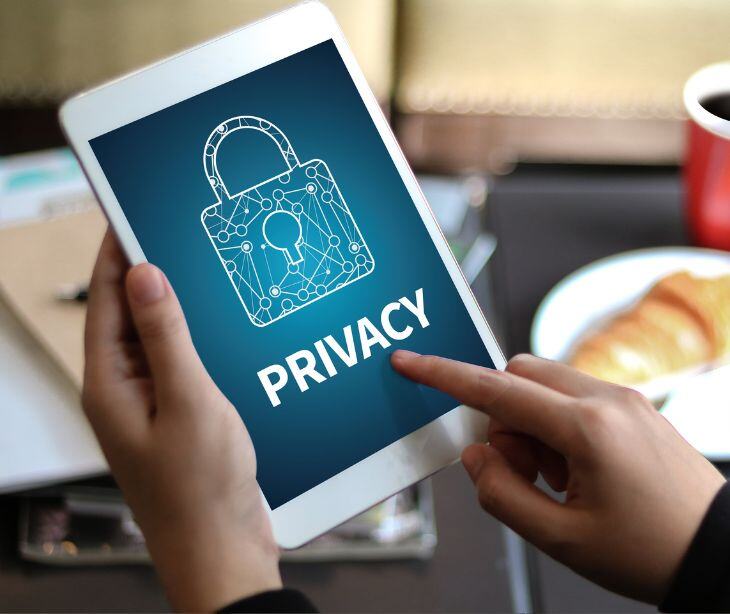2 min read
The difference between misinformation and disinformation
Kirsten Peremore
Nov 15, 2024 10:26:46 AM
%20-%202024-11-15T131544.692.jpg)
Both misinformation and disinformation can erode trust in medical providers and even the healthcare system as a whole. Misinformation refers to false information itself, while disinformation refers to when misinformation is spread for a malicious purpose.
Defining misinformation and disinformation
The HHS provides the definitions for both of these terms explaining that, “Misinformation is information that is false, inaccurate, or misleading according to the best available evidence at the time.
Disinformation is when misinformation is used to serve a malicious purpose, such as to trick people into believing something for financial gain or political advantage.”
Misinformation often originates from social media as a result of the differing beliefs people have about health practices and more commonly the misinterpretation of scientific studies. The information shared, although inaccurate, is often shared by the average well-meaning individual without malicious intent.
Disinformation exists on the opposite end of this spectrum with the information shared being intentionally used for nefarious purposes. Those who participate in these campaigns use it to manipulate perceptions and choices people make to divert them towards harmful decisions, like the avoidance of life-saving treatments.
Practical examples differentiating between medical misinformation and disinformation
Misinformation during the COVID-19 pandemic
During the 2020 pandemic, many people believed and shared the claim that taking high doses of Vitamin C could prevent or cure COVID-19. The belief stemmed from the belief that Vitamin C is generally associated with boosting the immune system during common colds. It was proven inaccurate, with a 2023 Imperial College Healthcare news article stating, “Researchers have found that high doses of vitamin C given to hospitalized patients through a tube in their vein is ineffective, with full analysis of the data suggesting that it may even be harmful.” What makes this misinformation is the lack of malicious intent despite the information being incorrect.
Disinformation during COVID-19
The pandemic also warranted a wealth of instances of disinformation with companies and groups profiting from the heightened fear and uncertainty in the initial stages of the outbreak. An example of this was promoting a ‘miracle mineral solution’ (MMS) as a cure. MMS is a form of industrial bleach and its promotion was used to profit financially from deceptive information practices.
What are the consequences of healthcare providers sharing inaccurate healthcare information?
While HIPPA mainly provides for the privacy and protection of a patient's medical data, misinformation that compromises patient safety or violates professional ethics can trigger an investigation from regulatory bodies like the HHS or state medicine boards. If deceptive practices, like selling patient information to companies aimed at distributing disinformation, these authorities can enforce penalties and corrective actions.
Providers who themselves deliberately mislead patients through more direct means like the promotion of unproven treatments could also face liability under the False Claims Act. The law imposes fraud charges and professionals could be subjected to penalties.
How HIPAA compliant email helps disseminate accurate information
Social media is a conduit for a wealth of information, but it isn’t always accurate. During stressful times, people can often turn to this as a source of information before consulting their medical professional. Healthcare professionals must educate patients and clarify complex medical concepts in accessible formats.
HIPAA compliant email is a secure means of achieving the goal of accurate information and is familiar to patients. Email is also a method of sharing verified material in a way that patients view as being more reliable and official than a social media post on the topic but more convenient than lengthy blog posts. Patients can then peruse material at their convenience and present any issues directly to the provider.
FAQs
Which public bodies are responsible for providing accurate healthcare information to the general public?
The Centers for Disease Control and Prevention (CDC), the Food and Drug Administration, and the Department of Health and Human Services (HHS).
How far is the reach of the Fifth Amendment?
It extends to the protection of individuals from self-incrimination in criminal cases and applies when providers are arrested for cases of negligence or fraud related to medical disinformation.
When are members of the public required to share their health-related information with law enforcement?
Members of the public are generally required to share health-related information with law enforcement when required for purposes like public health investigations or under court order.




